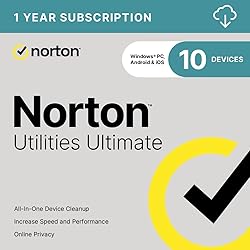VPN for Beginners: Everything You Need to Know
VPN for beginners is an essential topic in today’s digital landscape, where privacy threats and cyber attacks are ever-present. Whether you’re concerned about safeguarding your personal information, accessing restricted content, or simply seeking more online freedom, understanding the fundamentals of Virtual Private Networks (VPNs) is crucial. This guide will explain what a VPN is, why you might need one, how it works, and how to choose the right service to suit your needs.
—
What Is a VPN and Why Is It Important?
A VPN, or Virtual Private Network, is a service that creates a secure, encrypted tunnel between your device and the internet. This effectively hides your IP address and shields your online activities from prying eyes, such as cybercriminals, hackers, and even your internet service provider (ISP). As a beginner, it’s important to realize that simply browsing on public Wi-Fi can expose you to various risks, including identity theft and data interception. By using a VPN, your sensitive data—such as passwords, credit card numbers, and personal messages—remains protected from unauthorized access.
—
How Does a VPN for Beginners Actually Work?
Understanding how a VPN operates is key to appreciating its value. When you connect to a VPN, your internet traffic is routed through a secure server managed by the VPN provider. This process masks your real IP address and replaces it with one from the server’s location, making it appear as if you’re browsing from another place in the world.
Encryption: The Heart of VPN Security
A VPN uses strong encryption protocols to scramble your data, ensuring that even if someone intercepts your traffic, they can’t read or misuse your information. Common encryption standards include AES-256, which is highly secure and widely adopted by reputable VPN providers.
—
Reasons to Use a VPN
There are numerous benefits for using a VPN, even for beginners. Here are some of the most common reasons:
– Enhanced Privacy: Prevents third parties from tracking your online activities.
– Public Wi-Fi Security: Secures your connection in cafes, airports, and hotels.
– Bypass Censorship: Access websites and services otherwise restricted in your region.
– Safe Online Shopping: Protects your financial transactions from cyber threats.
– Streaming Freedom: Lets you access global streaming libraries by spoofing your location.
—
Choosing the Best VPN for Beginners
Selecting a VPN can be overwhelming, especially with the variety of services available. Here are some factors beginners should consider:
1. User-Friendly Interface
Look for a VPN that offers a straightforward and intuitive interface. Easy-to-use apps can make the setup process seamless even if you have no technical background.
2. Strong Security Features
Ensure the service provides robust encryption, a strict no-logs policy, and extra security features like a kill switch—which automatically disables your internet connection if the VPN drops, preventing accidental exposure.
3. Speed and Server Locations
Choose a VPN with fast connection speeds and a wide range of server locations. This helps optimize both your browsing speed and your access to global content.
4. Responsive Support
Good customer support can save you significant headaches if you encounter any issues. Opt for providers with live chat, comprehensive FAQs, or video guides.
—
Getting Started: Setting Up Your VPN
Setting up a VPN is usually straightforward:
1. Select a reputable VPN provider and sign up for a plan that fits your needs.
2. Download and install the VPN app on your preferred device(s).
3. Log in, select a server location, and connect.
4. Browse the internet securely—your activities are now encrypted and your IP address is hidden.
Most VPN providers offer step-by-step guides, making the onboarding process smooth even for those with minimal technical experience.
—
Staying Safer Online with a VPN
While a VPN greatly improves your online privacy and security, it’s important to remember it’s just one part of a broader cybersecurity strategy. Pair your VPN with strong passwords, updated devices, and awareness of phishing threats for comprehensive protection.
—
Conclusion
For anyone new to cybersecurity, understanding VPN for beginners is a vital first step toward better privacy and safer browsing. By choosing the right service and understanding how VPNs protect you, you can take meaningful control over your digital footprint and confidently enjoy the open internet.


